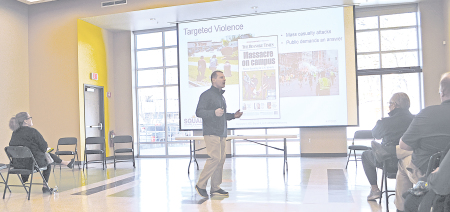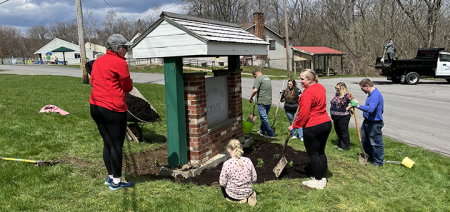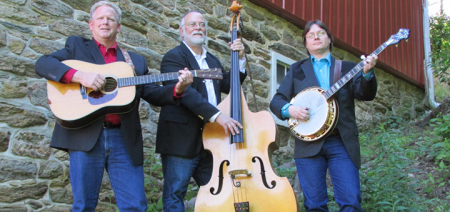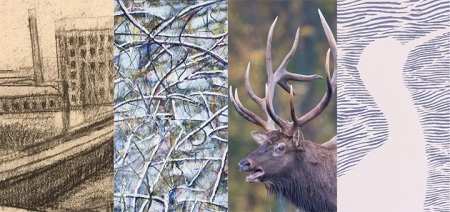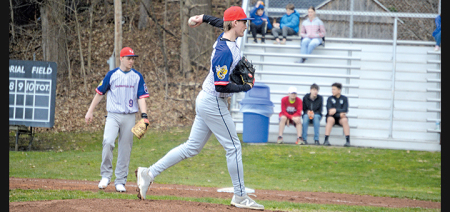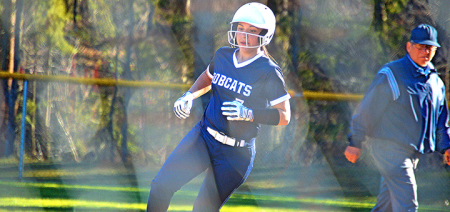Tilting At Windmills: The Cow Who Thought She Was A Horse - Encore
Published:
December 9th, 2022
By:
Shelly Reuben

Had she been given a choice, Mabel the Cow would have preferred a different name. In her heart of hearts, she knew that she was really a “Thunderbolt,” or a “Midnight,” or a “Comet.”
The name “Mabel,” however, had been engraved in big block letters on a plaque outside her stall, so she bowed to the inevitable, and accepted it. But her acceptance was only name-deep. Because – even though she loved big, black and white body and reveled in in her wide hips, perky ears, sturdy udder, and dainty teats – she was absolutely certain that she was not, could not, and would not be a cow.
She was a horse.
Calvin and Fern Packard owned a dairy. Their enterprise employed intimidating machines that were attached to a cow’s udder and sucked out all of the animal’s milk. The mere thought of being connected to such a device both humiliated and horrified Mabel.
“No!” She cried on the day that her mother, Ernestine, took her aside and to explain the COW FACTS OF LIFE.
“No! No! No! No!”
Ernestine ignored her daughter’s protestations.
“As cows,” she blathered obliviously, “we breed and we produce milk. That is what we are and that is what we do. Good fortune has provided us with a farmer who gives us high-grade oats, fresh water, and a clean and well-insulated barn. We are milked twice a day, and…”
Mabel interrupted. “Why are you telling me this, Mother? It has nothing to do with me, since I am not a cow. I am a horse!”
“Nonsense,” Ernestine responded. “You are a domesticated bovine whose lot in life is to work in a dairy. I am a cow, your father was a bull, and you are a cow. It is your proud heritage and immutable destiny to be attached to a milking machine and to produce milk. You are not a horse. You are…”
“Stop!” Mabel screamed. Then she proclaimed to all of the animals in the barn (none of whom were listening), that she would “never, never, never allow a man, a woman, or a child” to connect her to such a diabolical device and/or to subject her to such a scandalous breach of personal dignity.
Mabel had added “or child” to her “never allow” list, because Calvin and Fern Packard had a son. His name was Auggie, he was eleven years old, and he often helped his parents in the barn. Although she had once observed him resisting his father’s instructions to attach tit cups to a cow’s udders, Mabel still did not trust him. At least, not yet.
“I don’t want to be a dairy farmer!” Auggie sputtered while stamping his right foot. “I want to rope cattle. I want to bust broncos. I want to roam the Wide West.”
“Now, Auggie,” the boy’s father responded gently. “Your daddy is a dairy farmer, your granddaddy was a dairy farmer, and his daddy who cleared this land over a hundred years ago, was a dairy farmer. You come from a long line of farmers and…”
The boy grimaced. “But I don’t want to milk a cow. I want to ride a horse!”
Calvin Packard smiled and rested a big, work-worn hand on his son’s skinny shoulder. “Auggie, every boy since the beginning of time has wanted to be a cowboy, and every one of them has wanted to ride his own pony. Maybe someday, if the price of milk goes up and the price of grain goes down, your mother and I will be able to get you a horse, but this year…”
The boy shrugged, no longer angry. “I know, Pa,” he said, suddenly ashamed of his outburst. “And I’m sorry. It just that I want to ride so much.”
“Of course you do. Now, give me a little help with the milking, and then you can go outside and play.”
Auggie nodded, and headed across the barn to a stall which bore a small rectangular plaque engraved with the name “Mabel.”
Calvin grabbed his son’s arm and jerked him back.
“We’d best leave Mabel alone,” he said cautiously. “She’s an intelligent creature, but she is also the most obstinate animal I’ve ever owned. If you call her, she comes, and if you tell her to sit, she’ll plop down in the grass, just like a dog. She can count, too. Say four or seven or ten out loud, and she’ll scratch out the numbers in the dirt. But she won’t let herself be bred and she won’t let herself be milked. Our Mabel is gentle enough, but she sure as shooting has a mind of her own!”
Calvin gazed thoughtfully up to the roof of the barn. After a long minute, he smiled down at his son and added, “As a matter of fact, Auggie, Mabel reminds me of you. You’re a terrific kid, so long as I don’t treat you like a farmer, and Mabel’s a terrific cow, as long as I do treat her like a horse.”
And since Auggie had listened to every word that his dad uttered (pun intended) about Mabel’s disinclination to be a cow, and Mabel had been eavesdropping on the entire conversation, that’s pretty much the end … or maybe the beginning … of the story
I won’t say that after they were properly introduced, Auggie and Mabel entered anything resembling a horse race at the County Fair, but Mrs. Packard was an experienced leather worker, so she jerry-rigged a comfortable saddle for her son, with probably the widest seat and the longest cinch straps in the history of riding, with the possible exception of Lawrence of Arabia and his camel.
And ride was exactly what Auggie did that summer. He hitched a small wagon filled with barbed wire and tools to Mabel’s harness, rode her to the upper field, and helped his father to fix the fence. He packed picnic lunches in the wagon, along with an inner tube, fishing gear, and a few books, and rode her to the swimming hole at Wilkin’s Creek. He rode Mabel to town along Route 41, neighbors honking and waving out greeting as they drove by. And he rode her to the Apple Festival in the ballpark by the Chenango River, where his friends entered her into the Miss Apple Queen competition as a joke, and to everyone’s surprise, she won!
This was the first of six blissful years that Auggie spent with Mabel before he went to college. Years during which he created the opportunity to have a horse, and Mabel seized the opportunity to be one.
I don’t know if there is a moral to this story, except to recognize that it doesn’t matter where we come from and who or what we are at the time when we were born. If we want to be a racehorse, a mustang, a thoroughbred, or a stallion, then that is what we should be. We don’t have to let anybody tie us to a definition or a heritage; we should not allow anybody to mess with our dignity; and we cannot let anyone abrogate our dreams.
And last but not least, because I supposed that I ought to inject at least a little reality into this scenario, we certainly should never, never, never permit anybody to hook us up to a milking machine!
Copyright © Shelly Reuben, 2022. Shelly Reuben’s books have been nominated for Edgar, Prometheus, and Falcon awards. For more about her writing, visit www.shellyreuben.com
Author: Shelly Reuben - More From This Author
Comments
